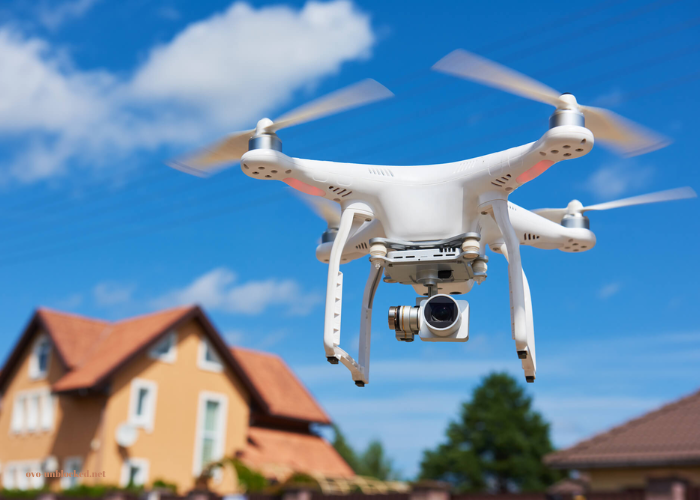The relentless march of technological advancement continues to redefine our world at an unprecedented pace. As we stand on the cusp of a new era, cutting-edge technology is not just enhancing our current capabilities but also laying the foundation for a future that promises to be dramatically different from what we know today. This article delves into the most influential tech trends shaping tomorrow, examining their potential impacts on various sectors and exploring how they are poised to revolutionize our lives.
Artificial Intelligence and Machine Learning
Artificial Intelligence (AI) and Machine Learning (ML) are at the forefront of technological innovation. AI systems, designed to mimic human intelligence, are increasingly being integrated into various applications, from virtual assistants to advanced analytics. ML, a subset of AI, enables systems to learn from data and improve over time without explicit programming. This dynamic duo is transforming industries by automating processes, enhancing decision-making, and providing deeper insights into data.
In healthcare, AI-driven diagnostic tools are revolutionizing patient care by offering more accurate and timely diagnoses. In finance, AI algorithms are optimizing trading strategies and fraud detection. Moreover, AI’s potential to personalize user experiences in sectors like retail and entertainment is unparalleled, creating more engaging and tailored interactions for consumers.
Quantum Computing
Quantum computing represents a leap forward in computational power and efficiency. Unlike classical computers that use bits as the smallest unit of data, quantum computers utilize quantum bits or qubits. Qubits can exist in multiple states simultaneously, enabling quantum computers to process complex problems at speeds unimaginable with traditional systems.
This technology promises to solve problems that are currently intractable, such as optimizing supply chains, advancing drug discovery, and decrypting complex codes. While still in its infancy, quantum computing holds the potential to revolutionize various fields by offering solutions to problems that are beyond the reach of classical computing methods.
5G and Beyond
The rollout of 5G networks is set to transform connectivity with significantly higher speeds, lower latency, and increased capacity compared to previous generations. This next-generation wireless technology will enable a vast array of new applications and services, from augmented reality (AR) and virtual reality (VR) to smart cities and autonomous vehicles.
5G’s ultra-fast speeds and low latency are crucial for real-time data transmission, which is essential for applications such as telemedicine, remote robotics, and interactive gaming. Additionally, the expanded capacity of 5G networks will support the growing number of connected devices in the Internet of Things (IoT), driving further innovations in smart home technology, industrial automation, and urban infrastructure.
Blockchain and Decentralized Systems
Blockchain technology, known for its role in powering cryptocurrencies like Bitcoin, is extending its reach beyond digital currencies. Its core principle—creating a decentralized, tamper-proof ledger—has significant implications for various industries.
In supply chain management, blockchain can enhance transparency and traceability, ensuring that products are sourced ethically and delivered efficiently. In finance, decentralized finance (DeFi) platforms are challenging traditional banking systems by offering alternative financial services through blockchain. Furthermore, blockchain’s potential to secure digital identities and protect data privacy makes it a valuable tool in an increasingly digital world.
Augmented Reality and Virtual Reality
Augmented Reality (AR) and Virtual Reality (VR) technologies are creating immersive experiences that blend digital and physical worlds. AR overlays digital information onto the real world, enhancing interactions with our environment, while VR immerses users in fully virtual environments.
In education and training, AR and VR offer interactive and engaging ways to learn new skills and concepts. In entertainment, they provide novel ways to experience games and movies. The potential applications of AR and VR extend to fields such as architecture, where they can visualize designs before construction, and healthcare, where they can simulate surgical procedures for training purposes.
Biotechnology and Genomics
Advancements in biotechnology and genomics are opening new frontiers in medicine and agriculture. Genomic sequencing technologies are enabling personalized medicine, where treatments are tailored to an individual’s genetic makeup. This approach promises to improve the effectiveness of treatments and reduce adverse effects.
In agriculture, biotechnology is driving innovations such as genetically modified crops that are more resilient to pests and environmental conditions. These advancements have the potential to address global food security challenges by increasing crop yields and reducing the need for chemical inputs.
Renewable Energy Technologies
As the world grapples with climate change, renewable energy technologies are becoming increasingly vital. Innovations in solar, wind, and energy storage technologies are making clean energy sources more efficient and cost-effective.
Solar panels are becoming more efficient, with new materials and designs enhancing their performance. Wind turbines are being developed to generate power in a wider range of conditions. Energy storage solutions, such as advanced batteries, are crucial for managing the intermittent nature of renewable energy sources and ensuring a stable power supply.
Human-Machine Interfaces
Human-machine interfaces (HMIs) are evolving to facilitate more intuitive interactions between people and technology. Advances in natural language processing, brain-computer interfaces, and wearable technology are making it easier for users to communicate with machines and control them using natural inputs.
Brain-computer interfaces, for example, have the potential to revolutionize how we interact with technology by enabling direct communication between the brain and machines. This technology could significantly enhance accessibility for individuals with disabilities and create new possibilities for human-computer interaction.
Robotics and Automation
Robotics and automation are transforming industries by increasing efficiency, precision, and safety. In manufacturing, robots are performing repetitive tasks with high accuracy, reducing the need for human intervention. In logistics, autonomous vehicles and drones are streamlining supply chains and deliveries.
The integration of AI with robotics is enabling the development of more intelligent and adaptable robots capable of performing complex tasks in dynamic environments. This trend is expected to accelerate as robots become more autonomous and versatile, impacting sectors such as healthcare, agriculture, and construction.
Ethical and Societal Implications
As we embrace these cutting-edge technologies, it is crucial to consider their ethical and societal implications. Issues such as data privacy, algorithmic bias, and the impact of automation on employment must be addressed to ensure that technological advancements benefit society as a whole.
Ethical frameworks and regulations are needed to guide the development and deployment of these technologies, ensuring that they are used responsibly and equitably. Public dialogue and interdisciplinary collaboration will be essential in navigating the challenges and opportunities presented by emerging technologies.
Conclusion
The tech trends shaping tomorrow are poised to revolutionize our world in profound ways. From AI and quantum computing to renewable energy and human-machine interfaces, these advancements hold the promise of transforming industries, enhancing our quality of life, and addressing some of the most pressing global challenges. As we navigate this rapidly evolving landscape, it is essential to embrace these innovations while also addressing the ethical and societal implications to ensure a future that is both technologically advanced and socially equitable. The journey ahead is filled with exciting possibilities, and the choices we make today will shape the world of tomorrow.

